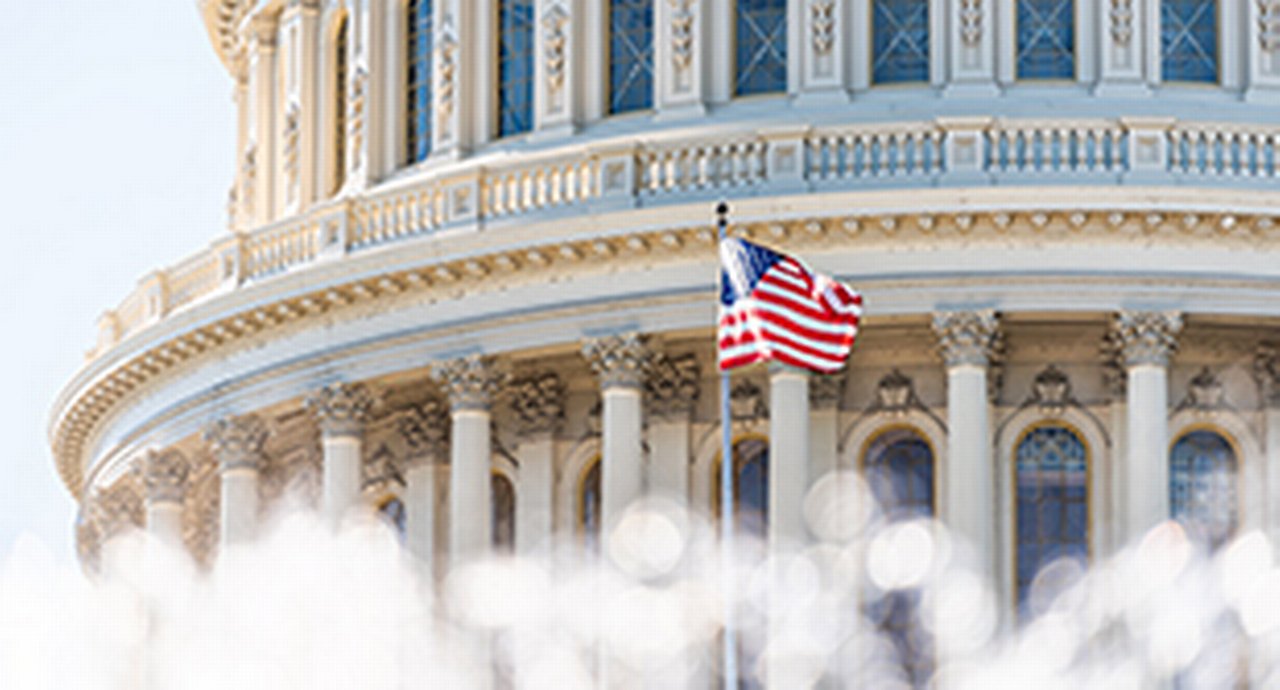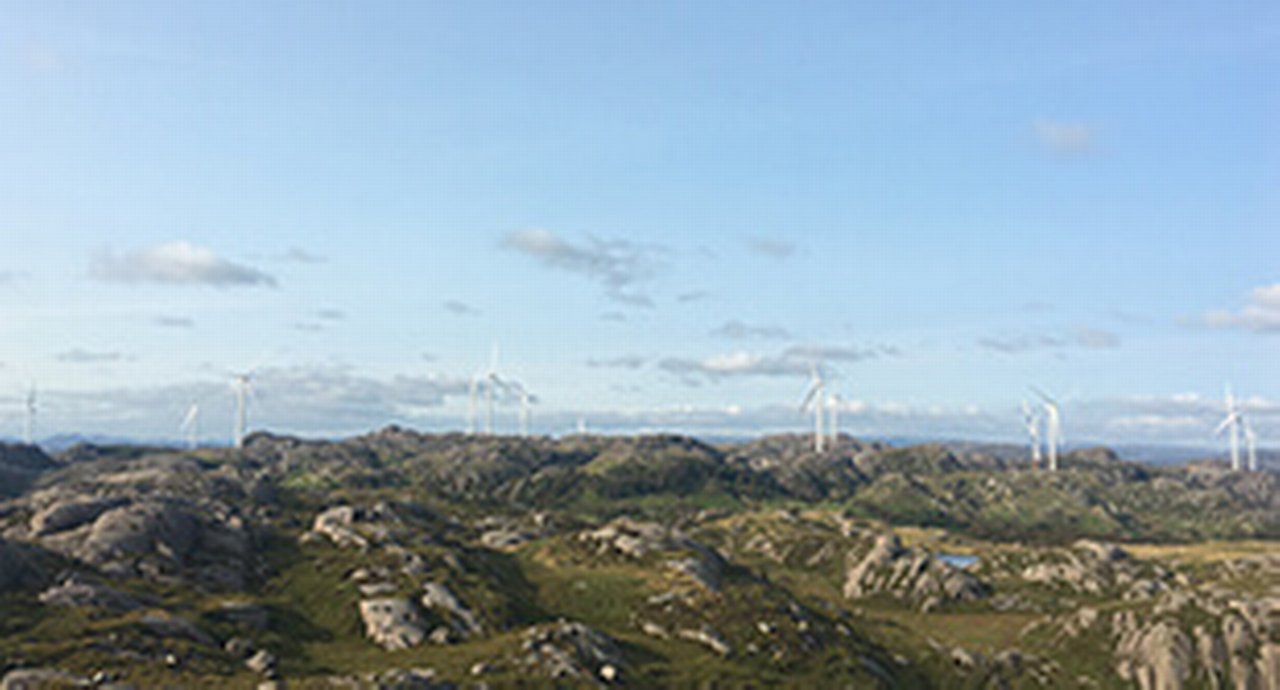March 2021
Joe Biden’s Build Back Better and the EU’s Green Deal pave the way for a revolution in sustainable infrastructure investing, say Deutsche Bank’s Dominik Thumfart and Jeremy Eisman
MINUTES min read
*This article first ran in Infrastructure Investor magazine’s Annual Review 2020
Q. How has Covid highlighted pre-existing sustainability themes?
Dominik Thumfart: Lockdowns have dramatically reduced air traffic and to a lesser extent road traffic – with a rise in e-commerce offsetting a reduction in car travel. That’s had a profound effect on the environment. In the spring of last year, the impact here in London, for example, was clearly visible in terms of better air quality and the canals in Venice became markedly cleaner in just a few short weeks. This has shown the world that it’s possible to effectively address climate change. Those lofty targets are not as remote as they once might have seemed. Meanwhile, the digitisation of office jobs has proven that many operations can be run in a digitised format, which will mean less travel even as Covid subsides.
Q. What impact will that have on the transportation infrastructure sector?
Jeremy Eisman: In one sense, Covid is making people more cautious about using public transportation, which is divergent with the goals of sustainability. But the pandemic is also creating an opportunity for governments and municipalities to rethink their public transportation networks. Where I’m based in New York, for example, the future of the Metropolitan Transport Authority, which has been debated for years, is now under scrutiny once again. The combination of Covid, and the understanding that a city’s core transportation network cannot be brought to a halt whenever we face a crisis of this nature, together with the sustainability focus of both the NY Governor’s office and the new Biden administration, creates an enormous opportunity for fresh thinking. The confluence of those two factors could lead to real change.
Q. Are we seeing a shift in policy response in Europe that could lead to sustainable infrastructure opportunities?
DT: The fact that one of President Biden’s key initiatives is known as Build Back Better indicates that infrastructure is going to be a big component of the economic stimulus programme in the US. In the EU, the comparable trademark policy is the Green Deal. Public policy, public procurement, any subsidies awarded to new sectors, will all be considered in the context of sustainability. There’s also been a lot of debate already in financing circles regarding the EU Taxonomy. That is basically a set of parameters that sets performance thresholds for all economic activities. In order to comply with the EU Taxonomy, you need to make a substantial contribution to at least one of six environmental objectives including climate change mitigation, adaptation, protection of water and marine resources and the transition to a circular economy. You must also do no significant harm to any of those objectives.
Those parameters will have a real impact on the infrastructure sector. For example, when the French government provided financial support to Air France last year, it was made on the basis that the airline shut down air traffic links between Paris and several regional cities where there is already a highspeed rail link. Once Covid slips from the front pages, focus on climate change will come back with a vengeance, not just in terms of clean power generation, but in terms of the decarbonisation of entire industries as well.
"Biden’s election represents a significant about–face in policy direction"
Q. Just how important is the election of Joe Biden when it comes to sustainable infrastructure investment?
Jeremy Eisman: I think there will be a fundamental change in the way, not just infrastructure investing, but all investing takes place. Biden’s election represents a significant about-face in policy direction, after four years in which the Trump administration appeared in many instances to be actively discouraging addressing sustainability issues, whether by removing methane emissions requirements for oil and gas producers or discouraging pension funds from incorporating non-economic considerations (such as ESG) in their allocation decisions. However Biden has turned all that on its head and gone further even than the Obama administration in implementing robust ESG policies. Even if he only remains for one term, many of these changes are unlikely to ever be reversed.
One of Biden’s longer-dated pledges is for the US to become a 100 percent clean energy economy by 2050. That timeline will clearly exceed his mandate, even if he does get a second term. But it’s still a deeply significant commitment, which validates long-term investment in a sustainable future. Meanwhile, re-joining the Paris Accord is another important symbolic gesture, signaling to the rest of the world that global warming is again something the US is taking seriously. The $5 trillion expected to be invested in green energy, including $1.7 trillion of federal government spending, has also grabbed attention.
That said, I believe that some of the more subtle changes could actually prove more important, for example, the fact that climate change now has to be addressed as part of every decision the federal government makes, whether that involves foreign policy, national security or trade in material. When you think about the spending power of the US government, within the US and globally, that will create a huge amount of sustainability momentum. Finally, the new administration is also encouraging listed companies to disclose on a range of ESG matters, everything from environmental sustainability to social issues such as the diligence to ensure socially responsible supply chains. And it isn’t just the regulators that are demanding that disclosure. BlackRock, for example, has said it will request this information from all its portfolio companies. When you have nearly $8 trillion of assets under management, that matters. The competition won’t likely want to be left behind, so pretty soon this will become standard in the market.
Q. Now that the US is on board with sustainability, is it Asia, and other emerging markets, that are the laggards?
DT: From a Deutsche Bank perspective, absolutely not. The region has been leading the charge within the bank with the appointment of Kamran Khan to the newly created role of head of ESG in Asia-Pacific last year. His remit is to advise on sustainability-linked product offerings across the corporate and investment banks, the DWS asset management operation and the private bank. Indeed, Asia is a big market for us. Around half of the global population lives there. In recent years, it has accounted for around two thirds of global economic growth. Several of the countries have fantastic solar and wind resources and, across the region, the energy transition is a major theme.
Pre-Covid, a pronounced urbanisation trend has created rising demand for bigger and more efficient infrastructure, from municipal transport to social infrastructure such as schools and hospitals. Meanwhile, there are several countries in Asia, the Middle East and Africa that are building new regional, and even central capitals. Take Egypt, Saudi Arabia and Indonesia, for example. Those are metropoles where everything from transportation to power and social infrastructure will need to be started from scratch – and the sustainability of these once-in a generation projects will be fully in focus.
JE: We also see Latin America as an exciting market. Several governments in that region are advanced in terms of their treatment of ESG matters and once the US starts its sustainability engine back up again, I believe there will be plenty of opportunities to deploy innovation into Latin America and other emerging markets.
Q. Are environmental considerations still dominating the sustainability agenda or has Covid placed an increased priority on social infrastructure?
DT: In August 2020, Deutsche Bank issued its Climate Statement in which the bank made a commitment to pour €200bn into sustainable financing and ESG investments by 2025. That commitment by our board trickles down into every single business line in terms of concrete lending, investment and debt arranging targets. The bank´s commitment to ESG includes not just environmental concerns but social concerns as well. We finance schools and universities and care homes, for example. Facilitating more and better services to help bridge the social divide is a very important part of what we do.
JE: The market in the US is slightly different because much of the MUSH (municipalities, universities, schools and hospitals) clients have access to the municipal bond market. However we definitely see social opportunities elsewhere. We recently arranged a social housing CMBS deal in the UK, for example. That deal was priced more tightly than its peers because of its social certification – in other words, its ESG credentials. I’d also add that environmental sustainability is not just about renewables. We see opportunities in financing carbon capture technology, which is another big focus of the Biden administration, as well recycling, battery production, waste-to-energy plants – anything that has a net positive benefit to sustainability. With the exception of energy storage, where battery technology seems to improve materially year-on-year, many of these technologies have been around for some time. The main changes have come about through regulatory and policy incentives as well as the quantum of capital which is seeking to be deployed in these spaces. As the demand for these investments has increased, the returns required have reduced making many of the opportunities more economic which is creating a lot of opportunity for both equity and debt investors.
DT: I completely agree that there are a lot of technologies out there, beyond renewable power. I’d add biofuels and smart metering, for example. We’re also currently working on a desalination plant in an emerging market. Some equity investors we work with are constantly pushing the boundaries of what can be considered sustainable infrastructure. Long before Covid, an infrastructure investor identified the stable revenues generated by medical labs in certain countries. We even last year financed a business that services the global salmon farming industry. The infrastructure theme there was the rising demand for protein as a result of global population growth.
"We’re seeing lot of innovation around sustainability-linked financing"
Q. Is the financing market responding with ESG innovation of its own?
DT: We’re seeing lot of innovation around sustainability-linked financing, where the cost of finance is linked to the achievements of certain ESG targets. For example, our capital markets business worked with a rice producer in Asia to help optimise its financing dependent on it achieving a set of environmental targets around water usage and fertilisers. We expect to see a lot of that innovation make its way into the infrastructure space.
Dominik Thumfart is global co-head of origination, infrastructure and energy
Jeremy Eisman is head of infrastructure and energy financing, Americas
Go to Corporate Bank EXPLORE MORE
Find out more about products and services
Go to Corporate Bank Go to Corporate BankStay up-to-date with
Sign-up flow newsbites
Choose your preferred banking topics and we will send you updated emails based on your selection
Sign-up Sign-upSubscribe Subscribe to our magazine
flow magazine is published annually and can be read online and delivered to your door in print
You might be interested in
Trade finance and lending
Biden’s packed agenda Biden’s packed agenda
Now that President Biden and Vice President Harris are installed in the White House, what are their immediate priorities? flow´s Clarissa Dann takes a look at Deutsche Bank Research’s insights, along with other observations on stimulus, infrastructure and tax reform – and responses from the central bank
TRUST AND AGENCY SERVICES
Bridging the sustainability gap Bridging the sustainability gap
Deutsche Bank’s Thalia Delahayes and Henrike Pfannenberg explain how corporate trust service providers can help infrastructure fund managers meet their ESG goals
TRUST AND AGENCY SERVICES {icon-book}
Renewable energy comes of age Renewable energy comes of age
Changing dynamics of renewable energy in Europe have upended the market as new buyers, investors and technology enter the fray. Janet du Chenne reports on investor enthusiasm, and forecasts what to expect next



